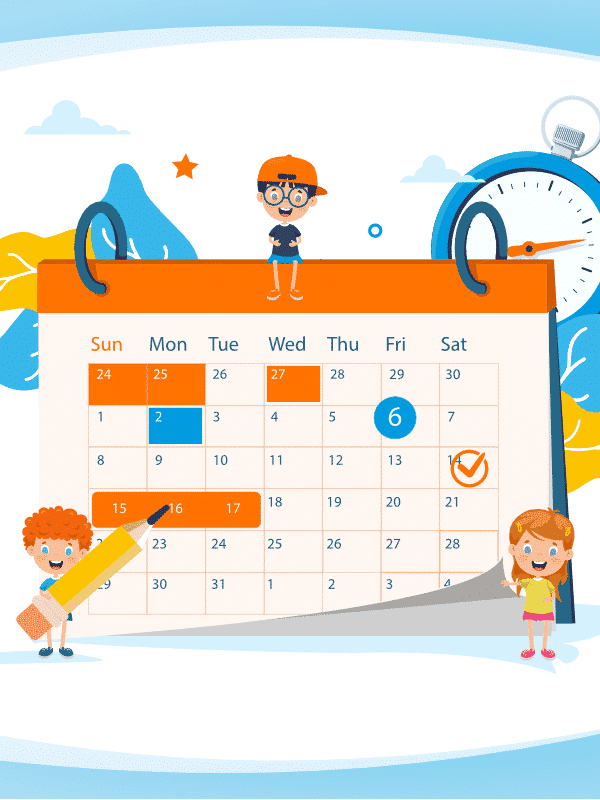One of the most wonderful gifts you can give to children is the feeling of having acceptance, stability, and most importantly, love. Of course, being a parent isn’t easy and, even though you love your child, it is true that, sometimes, showing love to them can be complicated. Disrespect, defiance, entitlement, tantrums, and other unpleasant behavior are examples of the hardest parenting moments. However, the things you say to your child can have an important influence on the correction of their behavior and attitude.
When children misbehave, you may instinctively nag them to correct them, but there are smarter and less stressful ways to do it. Multiple factors help a child become mature, responsible, and successful.
Among them are:
- Being a warm, responsive, and accepting parent, and cultivating a close parent-child relationship
- Mastering and teaching emotional regulation
- Letting them practice decision-making
- Challenging them just enough
- Motivating them through values (instead of using reward and punishment)
- Showing them kind, firm, and respectful discipline, and
- Practicing science-based parenting
Thus, positive words for your children matter. Even if it feels like your kids aren’t listening to a thing you say, the words you say to them play on repeat in their minds and can inspire them to grow into more kind, responsible, and respectful adults. For that reason, today we’ll show you our top 50 positive things every kid needs to hear so that in the long run, you won’t need to nag them! For parents that are raising their children to be bilingual, we’ve prepared this list both in English and Spanish.
50 Positive Things Every Kid Needs to Hear in English and Spanish
- It was brave of you to… – Fue muy valiente de tu parte…
- Your friends are lucky to have you. – Tus amigos tienen suerte de tenerte.
- You are so loved. – Eres tan amado(a)/querido(a).
- I believe you. – Te creo.
- You are worth it. – Eres valioso(a).
- You can try again tomorrow. – Puedes intentarlo de nuevo mañana.
- I love being your parent. – Me encanta ser tu padre/madre.
- Being around you makes me happy. – Estar alrededor de ti me hace feliz.
- I can’t wait to hear about it. – No puedo esperar a escuchar sobre eso.
- I admire the way you… – Admiro la forma/manera en la que tú…
- I’m listening. – Te estoy escuchando.
- Don’t be afraid to be you. – No tengas miedo de ser tú.
- You are important. – Eres importante.
- I accept who you are. – Yo acepto quién eres.
- I learn new things from you every day. – Aprendo cosas nuevas de ti cada día.
- That was a good choice. – Esa fue una buena elección.
- You were right. – Tenías razón.
- I understand you. – Te entiendo.
- I know I can trust you because… – Sé que puedo confiar en ti porque…
- It’s your decision. – Es tu decisión.
- Let’s try it your way. – Intentémoslo a tu manera.
- I will always be there for you. – Siempre estaré para ti.
- Thank you for being you. – Gracias por ser tú.
- You handled that situation very well. – Manejaste esa situación muy bien.
- You will learn how to do this. – Aprenderás a hacer esto.
- You’re on the right track. – Estás en el camino correcto.
- I appreciate how helpful you were when you… – Aprecio cuán útil fuiste cuando…
- What you create matters. – Lo que tú creas importa.
- I believe that you can do it. – Creo que puedes hacerlo.
- You never gave up, even when it was hard. – No te rendiste, incluso cuando fue difícil.
- You have such a positive attitude. – Tienes una actitud tan positiva.
- I’m so proud you made that choice. – Estoy tan orgulloso(a) de tu decisión.
- Your practice is paying off. – Tu práctica está dando resultado.
- Wow! How did you do that? – Wow, ¿cómo lo hiciste?
- You have really improved on… – Realmente has mejorado en…
- How can I help you? – ¿Cómo puedo ayudarte?
- It’s OK to feel… – Está bien sentirse…
- I’m here for you. – Estoy aquí para ti.
- Thank you for helping me. – Gracias por ayudarme.
- I’m glad we worked together on that. – Me alegra que hayamos trabajado juntos(as) en esto.
- I can tell you did your best because… – Me doy cuenta de que diste lo mejor de ti porque…
- I forgive you. – Te perdono.
- You are safe. – Estás seguro(a)/ a salvo.
- I love spending time with you. – Me encanta pasar tiempo contigo.
- That’s a great question. – Esa es una buena pregunta.
- Good thinking. – Bien pensado.
- You make my heart full. – Me enalteces el corazón.
- Our family wouldn’t be the same without you. – Nuestra familia no sería la misma sin ti.
- Thanks for doing that before I could even ask. – Gracias por hacer eso antes de que te preguntara.
- I care about you. – Me preocupo por ti.
But, it’s not all good, sometimes praise can have a negative effect. Some children don’t like it, feel like they don’t deserve it, or grow to be self-entitled.
How to Correctly Use the 50 Positive Things Every Kid Needs to Hear
Focus on the Effort
When you utter these words of encouragement you must focus on the effort rather than the achievement. Kids need to know that you love them because they try their best. Hence, it doesn’t matter if their abilities aren’t extraordinary, they want to know that you recognize the effort they put into a task.
Choose Specific Words
While the 50 top positive things for kids we listed may seem general, you are the only one that knows your child best. Therefore, use these words as a guide to structuring specific phrases to help your kids gain confidence. For example, if they are making a drawing, besides saying “good job” you can add a compliment about the colors your kid chose.
Avoid Giving Them Too Much Praise
If you overdo it, they’ll think that they no longer have to try to succeed and their self-confidence may go off the charts. When your children receive sincere loving words, you leave a positive impact on them.
Be Sincere and Honest
If the praise your kids receive feels insincere and dishonest, it can lead a child to feel discouraged or start practicing self-criticism. Therefore, make sure to use a natural tone, watch your body language, and fit the context of the situation.
Avoid Controlling
When you use positive language to control your children, they will think this approval and positivity depends solely on their performance and pleasing you. For example, pushing your kids to learn a language as a chore (and to receive your approval) is not the right approach. Instead, encourage their language journey with positive stimuli.
Avoid Comparison Praise
You don’t need to remind your child that a sibling performs better at a task. Doing this will not only push your child back from working harder, but it will make them feel vulnerable and unworthy.
A Healthy Bilingual Environment
Now, you know how to use the top 50 positive things every kid needs to hear. At TruFluency we always approach our Spanish immersion language lessons for kids with the best techniques that science and experience have given us with our Bellieu Method. Raise your children in a healthy bilingual environment and check out our blog and classes.


